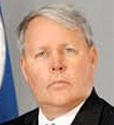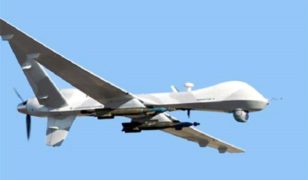TSA Deputy Administrator John Halinski joins Command Consulting Group

Command Consulting Group announced on August 27 that John Halinski, who retired last Friday as Deputy Administrator at the Transportation Security Administration (TSA), has joined the firm as a senior advisor, bringing both his knowledge and expertise on international aviation security, intelligence, and counterterrorism to the leading security and business advisory group.
Halinski has served in senior leadership positions over the last 10 years at TSA and for 25 years in the Marine Corps. While at TSA, some of Halinski’s key accomplishments include the advancement of measures to prevent and suppress all acts of unlawful interference against civil aviation and saving the agency millions by achieving operational efficiencies. Halinski also served as the primary technical advisor for Aviation Security at the Department of State, as the U.S. Representative to the International Civil Aviation Organization, and as the primary technical advisor for Aviation Security during Open Skies negotiations.
“John Halinski has been at the forefront of solving complex aviation security challenges over the past decade,” W. Ralph Basham, a founding partner at Command, said. “John’s unparalleled experience, especially in the international environment, will be a great benefit to our current and future international clients who are serious about achieving world class aviation security and regulatory compliance.”
At Command, Halinski will focus on working internationally with airlines, aviation authorities, associations, and airports to develop and execute comprehensive plans to improve security, prevent illicit activity, and meet international regulatory requirements by implementing best practices in the use of technology, procedures, training, and services.
“Command is all about solving problems and delivering results,” Halinski said. “I had no doubt that Command was the right platform for me to help governments and airlines solve complex challenges and reduce exposure to the ever-changing threat landscape that confronts them.”







